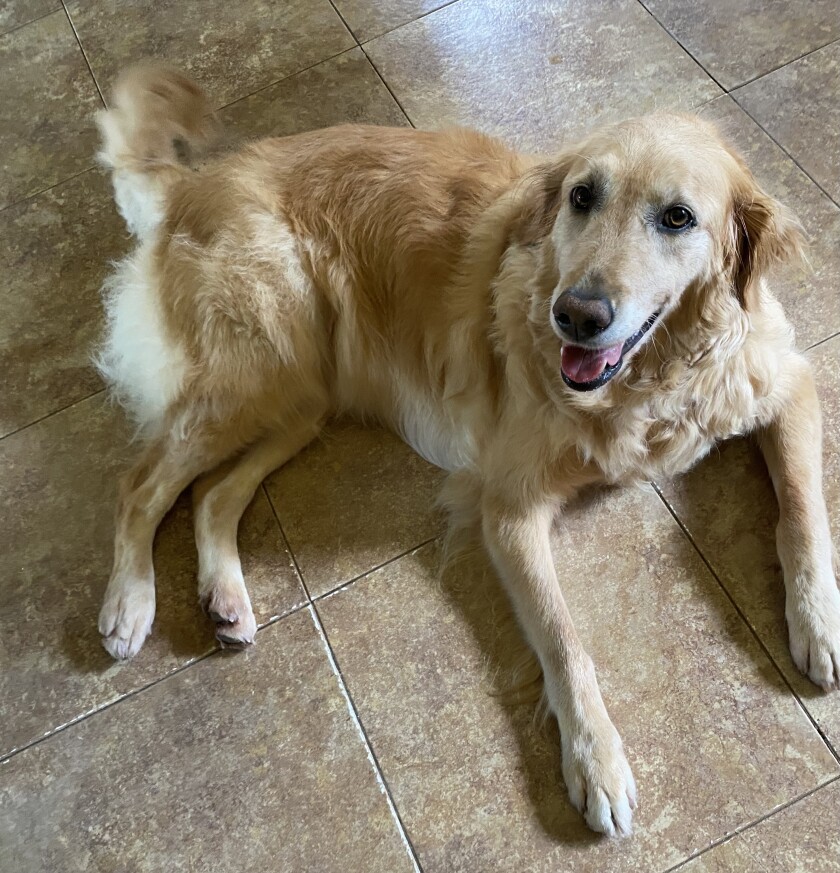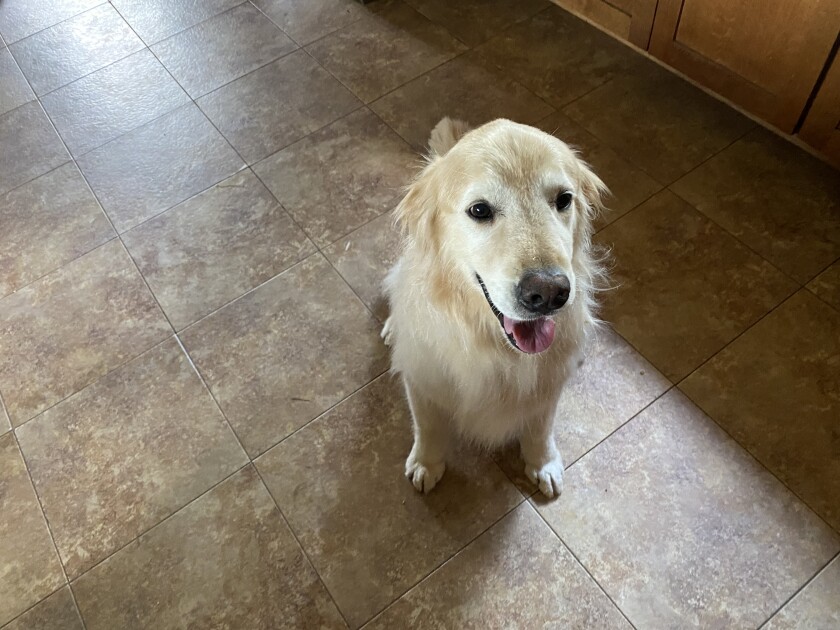Along with the sun-soaked, blue-skied days of summer that my dogs and I enjoy while on our daily walks there are misty, rainy days that keep us indoors.
Nova and Casey, our golden retrievers, and I love being outside so all three of us get restless when we’re cooped up in the house. As soon as the drop stops falling from above, we head outside for our walks.
ADVERTISEMENT
When there’s been enough precipitation to fill the potholes along the gravel roads where we walk, I keep the dogs on their leashes so they won’t go for a swim in the muddy water. It’s not as much fun for any of us when they have to stay on their leases because I get pulled in two different directions and they can’t run up and down the ditches and out in the fields.
It’s not so much concern about them getting dirty that is the reason for keeping them leashed, it’s that their furry ears are breeding grounds for infection and if water gets in them it usually means a round of antibiotics.
Even with them on their leashes, Nova and Casey manage to get dirty because their feathery legs, bellies and tails absorb water better than the leading brand paper towels. They need only to brush past the grass along the gravel roads to get soaked and then the dirt on the gravel road clings to their wet fur.
Long dry spells also create a challenge to keeping the dogs relatively clean. They roll down the ditches and into the fields, picking up grass, weeds and dust.

We do our best to brush the debris out of Nova’s and Casey’s coats, but they still look pretty disheveled when we’re done. We work on them outside in an attempt to limit the amount of hair floating around our house, but neither of them likes being brushed so they lay down during their beauty sessions on the lawn, gathering more bits and pieces of stuff in their fur. It’s kind of a vicious cycle so the sessions end pretty quickly.
I have the same philosophy about them getting dirty while they’re having fun as I did my children. I never minded my sons and daughter playing in mud puddles, becoming leaf-covered from hacking away at branches so they could make paths in the woods or engaging in “combat” with oversized zucchini.
I grew up doing the same sorts of things with my sister and brother and was glad to see that my children loved being outside as much as I did.
ADVERTISEMENT
Obviously, though, it was much easier for my children to take a bath or shower after they got dirty than it is to give our dogs a bath. We brush the dogs so they look presentable when we have company or take them to the boarding kennel, but otherwise much of the time during the warm months of the year, Nova and Casey look like they live on a farm, and that’s OK with me.

About once a summer, though, we decide that it’s time for a deep clean of our dogs and take them to a professional groomer. I’m always amazed by how beautiful Nova and Casey look after they’re groomed and how soft their fur feels. I’m not sure if they are as impressed as I am, but I think they probably appreciate that they don’t have any snarls in their fur.
I don’t know how long Nova’s and Casey’s late June grooming will last, but I am enjoying it for now. I will cringe the first time they go out after a rain or roll down the dusty ditch, then I’ll tell myself the dogs are just as happy, or maybe happier, when they’re dirty as they are when they’re clean and that will make me smile.
Ann Bailey lives on a farmstead near Larimore, North Dakota, that has been in her family since 1911. You can reach her at 218-779-8093 or anntbailey58@gmail.com.












